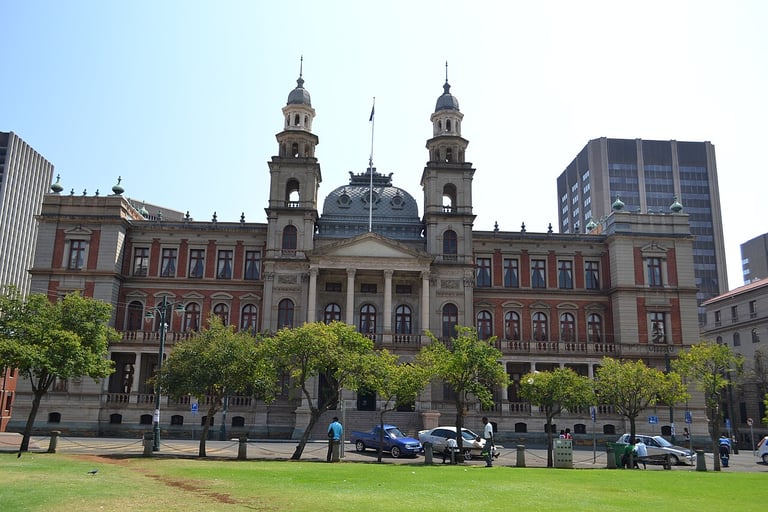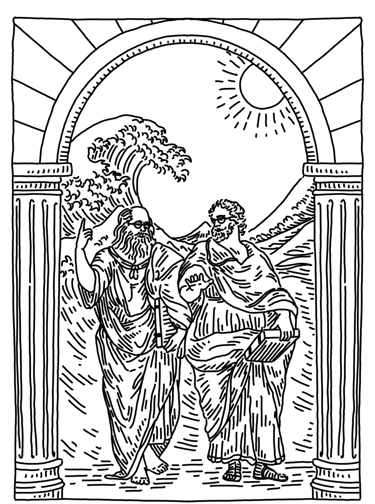Further Reading in Literature : South-Africa, Afghanistan, Lesotho and Malawi
A remarkable support from His Excellency the Ambassador of France to South Africa, Lesotho, and Malawi.
7/21/20254 min read


The Pretoria courthouse, where Nelson Mandela was tried.
Well-Founded Literary Recommendations
When I began the project, I set out in search of contacts who could help me identify the most relevant resources. While my attempts to reach out to universities and associations have met with mixed success so far, I was delighted to receive a second letter from an embassy. We will, in a few months, speak of the help I received from Her Excellency the Ambassador of the Principality of Andorra to France, Mrs. Esther Rabasa Grau. Today, however, it is His Excellency the Ambassador of France to South Africa, Lesotho, and Malawi, Mr. David Martinon, who deserves to be honored.
The idea of contacting embassies is simple: either it is an embassy in France, and the ambassador knows his or her country of origin, or it is a French embassy abroad, and the ambassador knows the country where he or she is posted. Moreover, in both cases, the ambassador speaks French — which greatly simplifies communication (the discussions with the Abkhaz nationals were not easy).
My request to Mr. Martinon was quite particular, because before being Ambassador to South Africa, he had been the French Ambassador to Afghanistan, notably during the Taliban’s return to power in August 2021. In addition, the French Embassy in South Africa also covers Lesotho and Malawi, so I asked him for literary recommendations on all four countries — and my expectations were far from disappointed. His advice extends over several pages, each reference being justified by its historical value and by the aspects that had most struck Mr. Martinon while reading.
First, concerning Afghanistan, Mr. Martinon made several recommendations, which I will only partially reproduce here:
Shanameh, by Ferdowsi. Literally The Book of Kings, it had escaped my attention in earlier research since its author is Persian. Nevertheless, Mr. Martinon noted that it is deeply rooted in the collective memory of Afghans. That alone is enough to convince me, and I will read it as soon as possible.
The Man Who Would Be King, by Rudyard Kipling. Written in 1888, during the period of British presence in India which then extended to the Afghan frontier, this novel presents Afghanistan as it was perceived in the colonial imagination — a point of view that was missing from my journey.
Les Cavaliers, by Joseph Kessel, which has the advantage of vividly depicting real scenes of bozkachi (or buzkashi), the traditional Afghan equestrian game, little known in France. Special care was given to the portrayal of Afghan customs.
In a similar vein, The Kite Runner by Khaled Hosseini and Earth and Ashes by Atiq Rahimi are, according to Mr. Martinon, essential reads for understanding contemporary Afghanistan.
Finally, Mr. Martinon’s own book, Les 15 jours qui ont fait basculer Kaboul (The 15 Days That Toppled Kabul), recounts the days preceding and following the fall of Kabul in 2021 — notably the evacuations and, conversely, the stories of those who could not be evacuated. I will read it with great interest; it is a precious testimony.
I see this project as an opportunity to meet and converse with people from all walks of life — literary, but not only. There is no real end to reach, no deadline to meet, and it gives me great pleasure to return to Afghan literature upon such recommendations.
Second, regarding South Africa, Mr. Martinon recommends:
Disgrace, by John Maxwell Coetzee. A Nobel Prize laureate in literature and a professor of the same discipline, his long career gives him a deep perspective on South African letters. He also follows in the wake of the Sestigers, whose legacy I am eager to explore.
Long Walk to Freedom, Nelson Mandela’s autobiography — a classic.
July’s People, by Nadine Gordimer, another Nobel Prize winner, whom we already mentioned in the reading roadmap.
In a more contemporary register, Born a Crime by Trevor Noah, the comedian, and Welcome to Our Hillbrow by Phaswane Mpe. The latter attracts me especially, as Mr. Martinon explained that he had been genuinely moved by this novel, which portrays the urban underclass.
Third, regarding Lesotho — a country not easy to approach within the Voyages Livresques project.
Lesotho has been an independent state since 1966, landlocked within South Africa. It is predominantly inhabited by the Sotho people, also found in South Africa. For the period before 1966, a question remains: should books be attributed (in the framework of Voyages Livresques) to South Africa or to Lesotho, which did not yet exist? I have no fixed answer, except that I have included Popular Tales of the Basutos under South Africa, as the title suggested.
The question arises again when Mr. Martinon warmly recommends reading the works of Thomas Mofolo, especially Chaka, as books from Lesotho — which is coherent, since Mofolo was born in Basutoland, then a British protectorate that would later become Lesotho. However, as mentioned in the roadmap, I have included Thomas Mofolo, and especially Chaka, among the South African readings, mainly for consistency with the Popular Tales of the Basutos. No choice seems perfect, but since Mr. Martinon describes Mofolo’s writings as major works deeply grounded in African oral traditions, I know the reading will be rewarding, and that reassures me.
Fourth, Mr. Martinon recommends two works for Malawi:
I Will Try, by Legson Kayira — an autobiography about a young Malawian who walks all the way to Cairo to obtain a scholarship, set in the context of African independence movements.
Of Chameleons and Gods, by Jack Mapanje — a poetry collection written in resistance to the authoritarian regime of Hastings Banda.
Although I have several years of reading ahead before reaching Malawi, I carefully note these references, which will certainly be part of the journey when the time comes.
To conclude, I can only renew my warm thanks to Mr. Martinon for all the time he generously devoted to me, despite his demanding duties — a true sign of his love for literature and culture. This Voyages Livresques project finds its full meaning in such recommendations, whose ultimate goal is to make all cultures and histories better known.
May his suggestions inspire other contributions!
